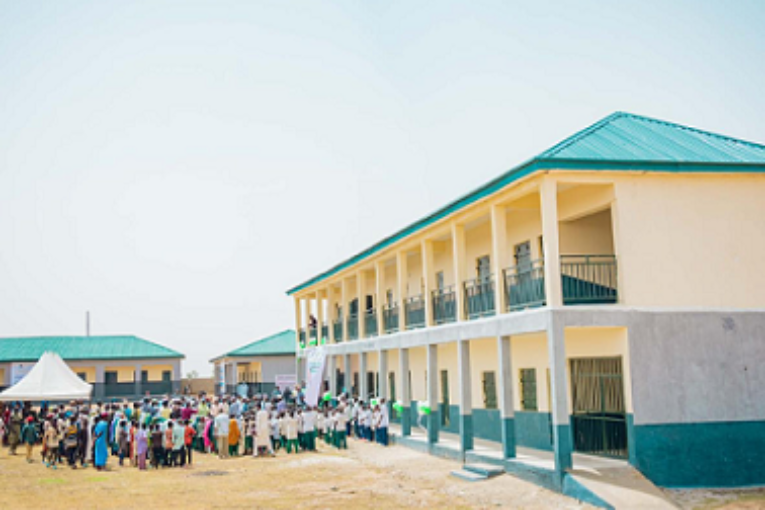
The Kaduna State Government is moving toward institutionalising “safe spaces” in secondary schools as part of efforts to strengthen girl-child education and address gender-based barriers to learning across the state.
The call was made at the maiden edition of the Girls’ Education Summit held in Zaria, where education stakeholders, policymakers, and advocates emphasised the need to integrate the concept of safe spaces into the school curriculum.
Arewa PUNCH reports that the idea of safe spaces refers to environments free from violence, discrimination, harassment, or fear — where students, especially girls, feel secure, respected, and confident to express themselves without judgment. Such spaces promote emotional well-being, inclusivity, and a positive school culture that enhances learning and personal growth.
Our correspondent reports that Kaduna had in recent years emerged as one of the northern states making deliberate policy moves to promote girl-child education, even as successive administrations in the state have worked with local and international development partners to tackle the out-of-school challenge through reforms aimed at boosting enrolment, retention, and completion rates for girls.
Despite these efforts, many girls, particularly in rural communities, still face obstacles such as early marriage, poverty, gender stereotypes, insecurity, and inadequate learning infrastructure.
According to data from the UNICEF, northern Nigeria accounts for some of the highest numbers of out-of-school girls in the country, with cultural and economic pressures often limiting their access to formal education.
In Kaduna, initiatives like the Adolescent Girls’ Initiative for Learning and Empowerment and the Centre for Girls’ Education have been instrumental in providing mentorship, scholarships, and community engagement to support female learners.
The concept of safe spaces — already implemented in some pilot schools — provides a supportive environment where girls can share experiences, learn life skills, and build self-esteem under the guidance of trained mentors.
Speaking at the Zaria summit on Tuesday, the Director of the Centre for Girls’ Education, Hajiya Habiba Mohammed, said embedding safe spaces into the school curriculum would boost enrolment, improve retention, and empower girls to reach their full potential.
“The summit aims to honour the resilience, courage, and potential of the girl-child, who, despite numerous challenges, continues to pursue knowledge and skills.
“Many girls face disproportionate barriers that force them out of school and make them vulnerable to exploitation. Institutionalising safe spaces will go a long way in addressing these challenges,” she said.
According to the CGE director, the Centre remains committed to providing platforms where girls can freely express themselves, acquire leadership skills, and build the confidence needed to influence positive change in their communities.
“Every girl, no matter where she comes from, deserves the chance to learn, dream, and thrive. Education is a powerful tool for transformation. When girls are educated and empowered, they don’t just rise — they lift others as they rise,” she added.
Habiba further explained that the summit brought together girls from various projects implemented by the Centre to share experiences, discuss challenges, and design strategies to strengthen girls’ education in Kaduna.
This year’s summit, themed: “The Girl I Am, The Change I Lead: Girls on the Front Lines of Crises,” underscored the leadership roles girls play in addressing social, economic, and educational challenges within their communities.
Also speaking, Hon. Mahmud Ismail, who represents Zaria Constituency in the Kaduna State House of Assembly and chairs the House Committee on Education, revealed that the legislature was already working on a bill to give legal backing to the creation of safe spaces in schools.
“When passed, the bill will make it mandatory for schools to adopt measures that protect students, especially girls, from harassment, intimidation, and all forms of abuse.
“This is part of our broader effort to make learning environments in Kaduna State safe and conducive for all children,” he said.
Ismail also disclosed that the state government had successfully re-enrolled more than 10,000 out-of-school children into basic and post-basic schools through its “Reach Out-of-School Children” reform programme.
He reaffirmed the state’s commitment to improving access to quality education for girls, describing the initiative as both a moral duty and a strategic investment in Kaduna’s future.
“Educating the girl-child is not just a moral obligation; it is an investment in the state’s future. Kaduna is determined to create a safe learning environment where every child, especially girls, can flourish,” he said.
The summit, which drew participants from across the state — including school principals, teachers, community leaders, development partners, and young female students — served as a platform for policy dialogue, advocacy, and collaboration toward accelerating progress on gender equity and advancing girls’ education in Kaduna State.




